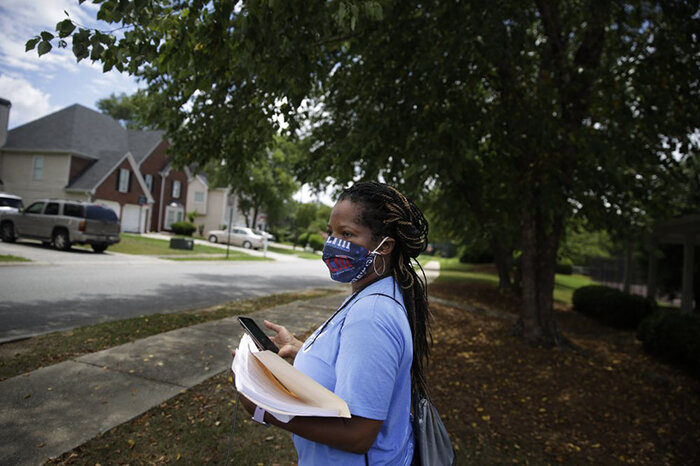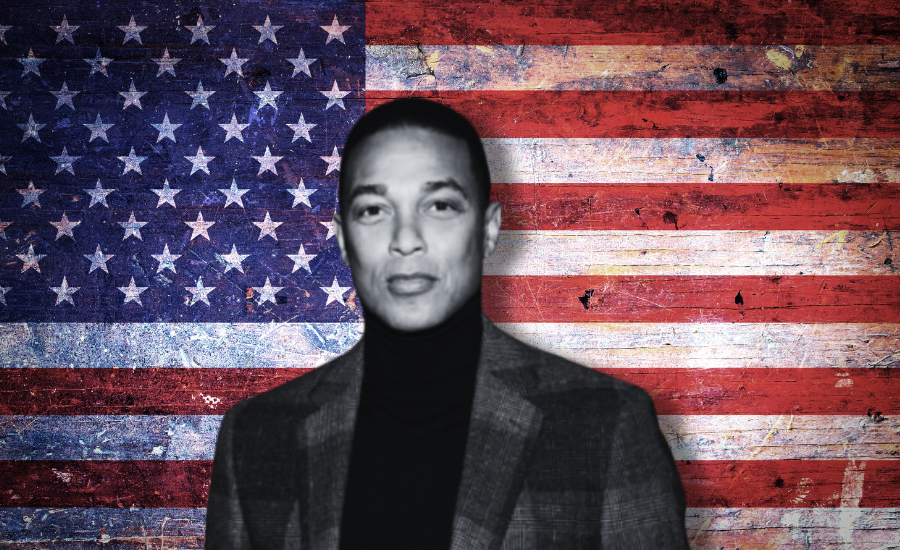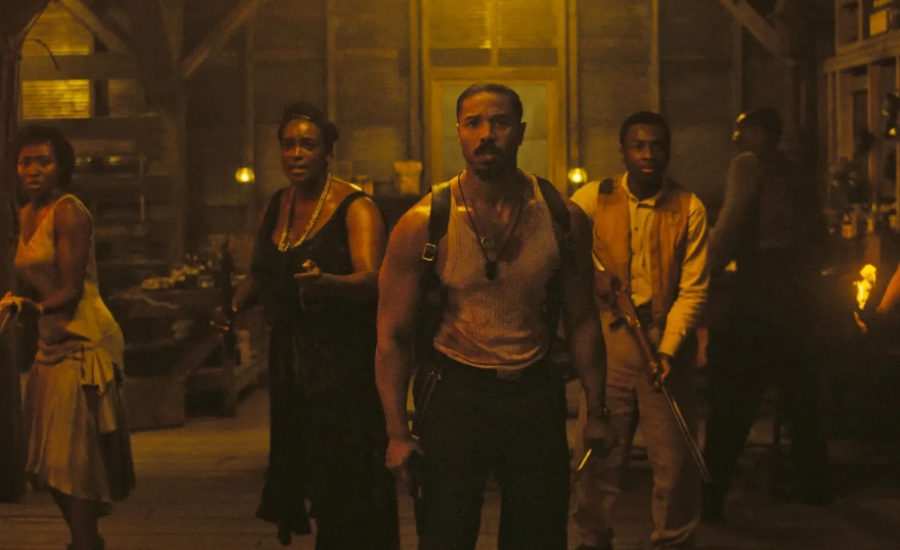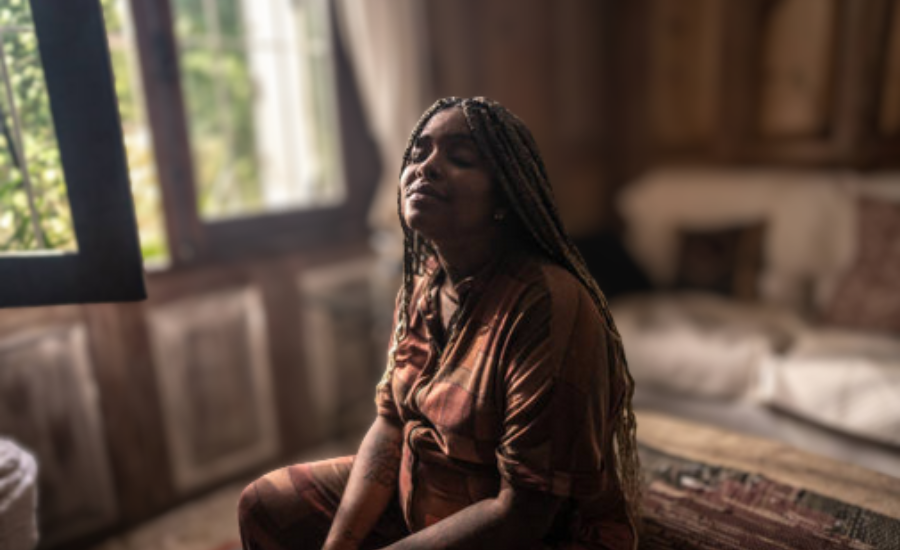'If Not Now, When?' Black women seize political spotlight
By Claire Galofaro and Kat Safford // Associated Press
MARIETTA, Ga. (AP) — The little girl ran up to her, wide-eyed and giddy.
“Are you Charisse Davis?” the fourth grader asked.
Davis was stunned. A former kindergarten teacher and librarian, she was more accustomed to shuttling her two sons to basketball practice than being seen as a local celebrity. But now she had been elected the only Black woman on the Cobb County School Board, gaining office in a once conservative suburban community where people who look like her rarely held positions of power.
Audrey Allen, 54, walks on the sidewalk near a neighborhood where she hands out early voting registration forms in Powder Springs, Ga. (AP Photo/Brynn Anderson)
Something had changed in this place, and something had changed in her.
“I love your hair — your hair looks like my hair,” the girl squealed, calling friends over.
It was a moment both innocent and revealing: Not just a child seeing herself in an elected leader, but also a reflection of the rapidly building power of Black women. It’s a momentous change that could make history on a national ticket and determine the outcome of the presidential race.
Black women have long been the heart of the Democratic Party — among the party’s most reliable and loyal voters — but for decades that allegiance didn’t translate to their own political rise. There have been zero Black female governors, just two senators, several dozen congresswomen.
And the people representing them instead have not met their needs: Disparities in education and opportunity resulted in Black women making on average 64 cents for every dollar a white man makes. Long-standing health inequities have caused Black people to die disproportionately from COVID-19.
And countless cases of police brutality have left many Black women terrified every time their children pulled out of the driveway, fearing that they might not make it home alive.
Now Black women are mobilized and demanding an overdue return on their investment. Over the last several years and across America, Black women ran and won elections in historic numbers, from Congress to county school boards.
This transformation is taking place in once unlikely places, suburban counties in the South. Places like Cobb, a rambling expanse of strip malls and subdivisions just north of Atlanta that doubled in population midway through the last century as white people fled the city. Then, slowly, families of color followed, also seeking bigger yards and better schools.
The year Charisse Davis was born, 1980, Cobb County was 4.5% African American. Now it’s more than 27% Black and 13% Hispanic. Its politics caught up with its demographics: In 2016 Hillary Clinton was the first Democratic presidential candidate to eke out a win in Cobb County since Jimmy Carter, a Georgian, in 1976.
President Donald Trump’s presidency, which has fueled racial divisions and appealed to white grievance, unleashed for some here an overwhelming urgency. They added their names to down-ticket ballots; they canvassed; they knocked on doors.
Charisse Davis looked at the school board members and saw no Black women, so she ran and won. Another Black woman became the chair of the county’s young Republicans. Two joined the Superior Court bench. A teenager ran for class president, and she won, too.
“We’ve been watching from the sidelines and allowing other people to take their turns, and take these positions of power,” Davis said. “Now here we are to essentially fix it.”











